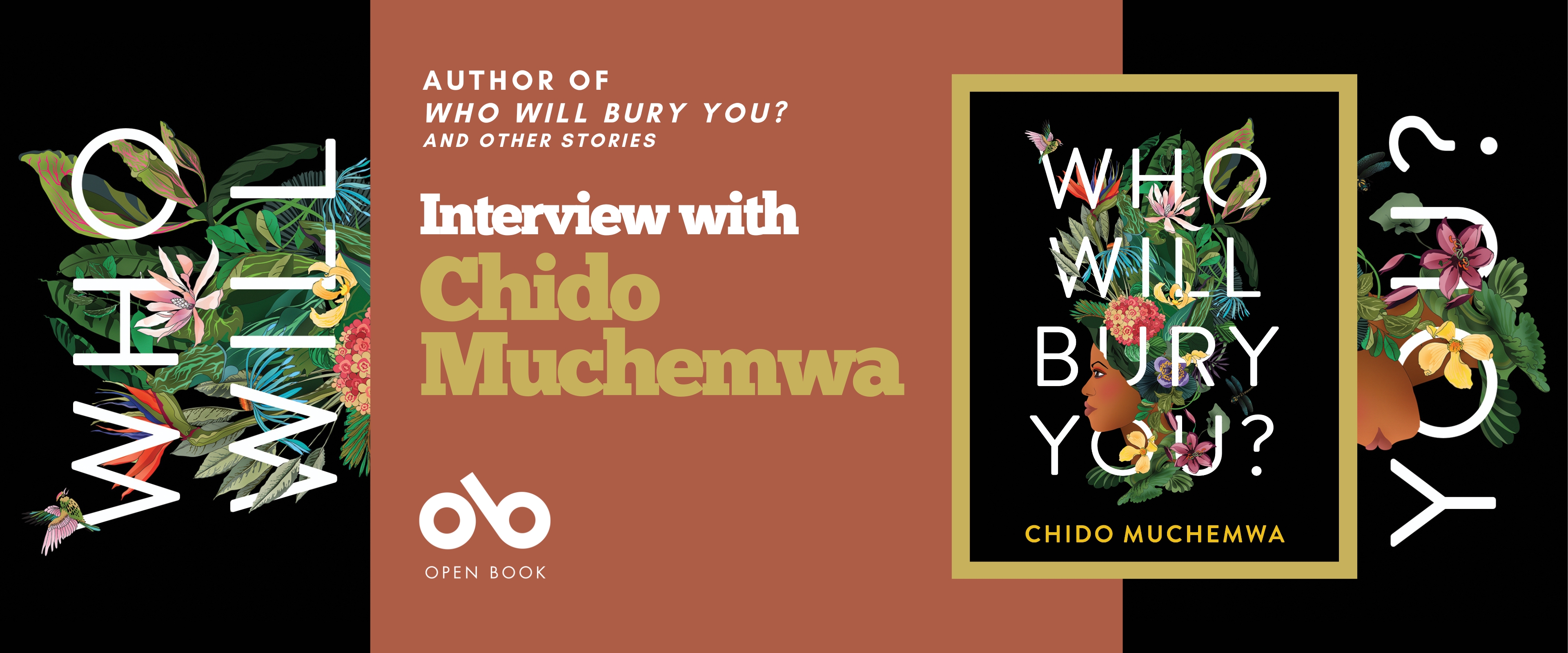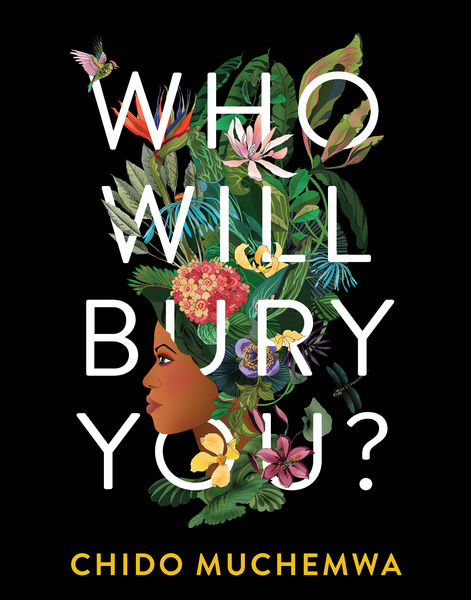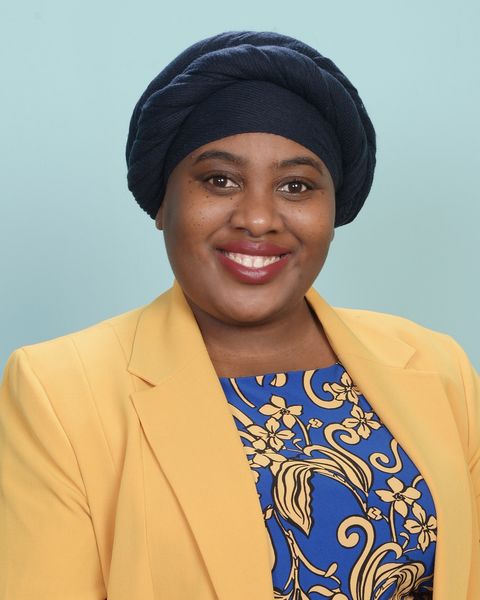Chido Muchemwa Makes a Powerful Debut with the Poignant and Complex Stories in Who Will Bury You?
Acclaimed short story writer Chido Muchemwa has been published widely in prestigious literary journals across North America. Twice shortlisted for the Short Story Day Africa Prize, and winner of the 2022 Bridge Prize, it was only a matter of time before the author found her first book on the shelves.
That debut comes in Who Will Bury You? (House of Anansi Press), a work of collected fiction from Muchemwa that is anchored by the titular story. These are poignant and profound tales set in Toronto and Zimbabwe, and touching on themes that speak to what is it to be human, and how we confront issues of inequality, identity, loss, and love in complex ways.
Balanced expertly with twelve stories, the collection contains mothers and daughters navigating sexuality, sisters who try to hold on to family bonds through loss, and fathers who must face their daughters leaving home. These grounded and very real elements are complimented by elements of magic and folklore that underpin a fascinating debut.
We're excited to share this Keep It Short interview with the author, right here on Open Book!
Open Book:
How did you decide what stories to include in the collection? When were they written?
Chido Muchemwa:
The stories were written over the space of eight years, and I would say the writing of the first story coincided with my growing interest in archives. I visited the National Archives of Zimbabwe in 2015 looking for some family history and I was surprised by how little they had. At the time, I was under the impression that archives have everything. I assumed that someone somewhere was keeping track of everyone’s history. In some ways, this short story collection is me telling the Zimbabwean stories that I couldn’t find in the archives. It’s telling the histories that are considered insignificant when we look at national narratives: the domestic, the personal, the everyday and those odd moments when our ordinary clashes with someone else’s very different ordinary and we are forced to reassess the things we take for granted. For example, “The Last of the Boys” is about the war for independence, but it’s not set on the frontlines, but rather in a village where women are battling to decide how far they are willing to go to protect their children from the war. And “Paradise” looks at the impact of losing so many to the AIDS crisis and emigration, by following a homeless man who spends his days in the cemetery because that where all his relatives in Zimbabwe are located.
OB:
What do the stories have in common? Do you see a link between them, either structurally or thematically?
CM:
All the stories are linked thematically around issues of loss, migration and identity. They are grouped according to place – the first four stories are set in Toronto, and the rest are set in Zimbabwe, except for “The Snore Monitor” which is set in South Africa. However, the first three stories in the collection are about the same characters. “Who Will Bury You,” “This Will Break My Mother’s Heart,” and “If It Wasn’t For the Nights,” are stories that center around a mother and daughter grappling with the implications of the daughter moving to Canada and how being that far from her mother and what she has always known allows her to discover a new side of herself. I wanted these stories right at the beginning because they marked a turning point in my writing. Like the daughter, Tino, moving to Toronto was a transformative moment for me. I think I became more adventurous as a writer, and willing to experiment a lot more with voice. As a result, in this collection, I think a lot about how place shapes our lives, how moving from one place to another can reshape how we understand who we are.
OB:
How did you decide which story would be the title story of your collection? Why that story in particular?
Your CanLit News
Subscribe to Open Book’s newsletter to get local book events, literary content, writing tips, and more in your inbox
CM:
It was never a debate which story it would be. One title clearly stood out. “Who Will Bury You” is just such a striking statement. The story “Who Will Bury You” is about a woman who seeks counselling from the reverend’s wife because she is appalled at herself for suddenly becoming the kind of mother who keeps asking her thirty-year-old daughter when she is going to get married. The mother asks her daughter repeatedly who she thinks will bury her if she never gets married. The question “who will bury you?” is one that provokes many different emotions and reactions. The mother in the story says, “Sometimes I think that maybe when I ask who will bury you what I’m really saying is who will be there at the end.” I think this is a common anxiety for many of my characters who are outsiders trying to figure out where they fit in and whether the people they care about would notice if they disappeared. The question is always in the background through the collection, and it really is the heart of the work.
OB:
Did you do any specific research for any of your stories? Tell us a bit about that process.
CM:
Because of my training as an archivist, (and having just written a dissertation) one of my first instincts with any story is to dig into the archives and find out what happened in the past. I love adding historical context to my stories, primarily from newspapers and memoirs, and the research often develops into another story. For example, I wrote “The Captive River” which is set in the near future Zimbabwe where a girl living near Kariba Dam has to figure out how to save her indigenous community in the face of climate crisis and a dying river. To write the story I needed the history of the building of the Kariba Dam to contextualize the River God Nyami Nyami’s anger. I read a book called Kariba: The Struggle With The River God by Frank Clements (1960) which describes the community that sprung around the building project. And I was so intrigued by the stories of what the wives were doing while their husbands were working on the dam wall in 1950s Rhodesia that I ended up writing the story “Kariba Heights,” which is about the relationship between a Black maid and the white women she worked for.
OB:
Do you have a favourite short story collection that you've read? Tell us why it is special to you.
CM:
There are three collections I always return to. There is An Elegy for Easterly by Petina Gappah. I love the variety of Zimbabwean stories she tells and how each story manages to have a very distinct voice that stays with you. I always return to Interpreter of Maladies by Jhumpa Lahiri when I feel like I need a reminder of how a short story works. And What It Means When A Man Falls from the Sky by Lesley Nneka Arimah always leaves me feeling like I’m ready to take off. I think I get more ambitious with my stories when I read this brilliant collection. There is nowhere Arimah’s pen cannot go.
OB:
Did you celebrate finishing your final draft or any other milestones during the writing process? If so, how?
CM:
In 2017, I came to Toronto for a conference, and it was my first time in the city. I remember sitting at the Harbourfront, watching the planes come in to land at Billy Bishop, and I made myself a promise that I was going to move to Toronto, and I was going to get my first book published. So, when the book finally happened, I definitely had to go to the Harbourfront just to remind myself of the promises I made to myself and how I saw them through.
OB:
Who did you dedicate your collection to, and why?
CM:
My collection is dedicated to my parents, Daniel and Ellah Muchemwa. A lot of times when I am talking to people about parents and writing dreams, people assume that my parents would fit that stereotype of wanting their smart kid to be a doctor, a lawyer or an engineer and nothing else. All my parents ever asked of me was to do my best, whatever it was. They supported every dream I ever chased, even when it didn’t make sense to them. And most importantly, they bought every book I ever asked for as a kid which was A LOT of books!
__________________________________________
Chido Muchemwa is a Zimbabwean writer living in Toronto. Her work has appeared in Lolwe, Augur, Catapult, Baltimore Review, and PRISM international, among others. She has been shortlisted twice for the Short Story Day Africa Prize, and she was the winner of the 2022 Bridge Prize.







